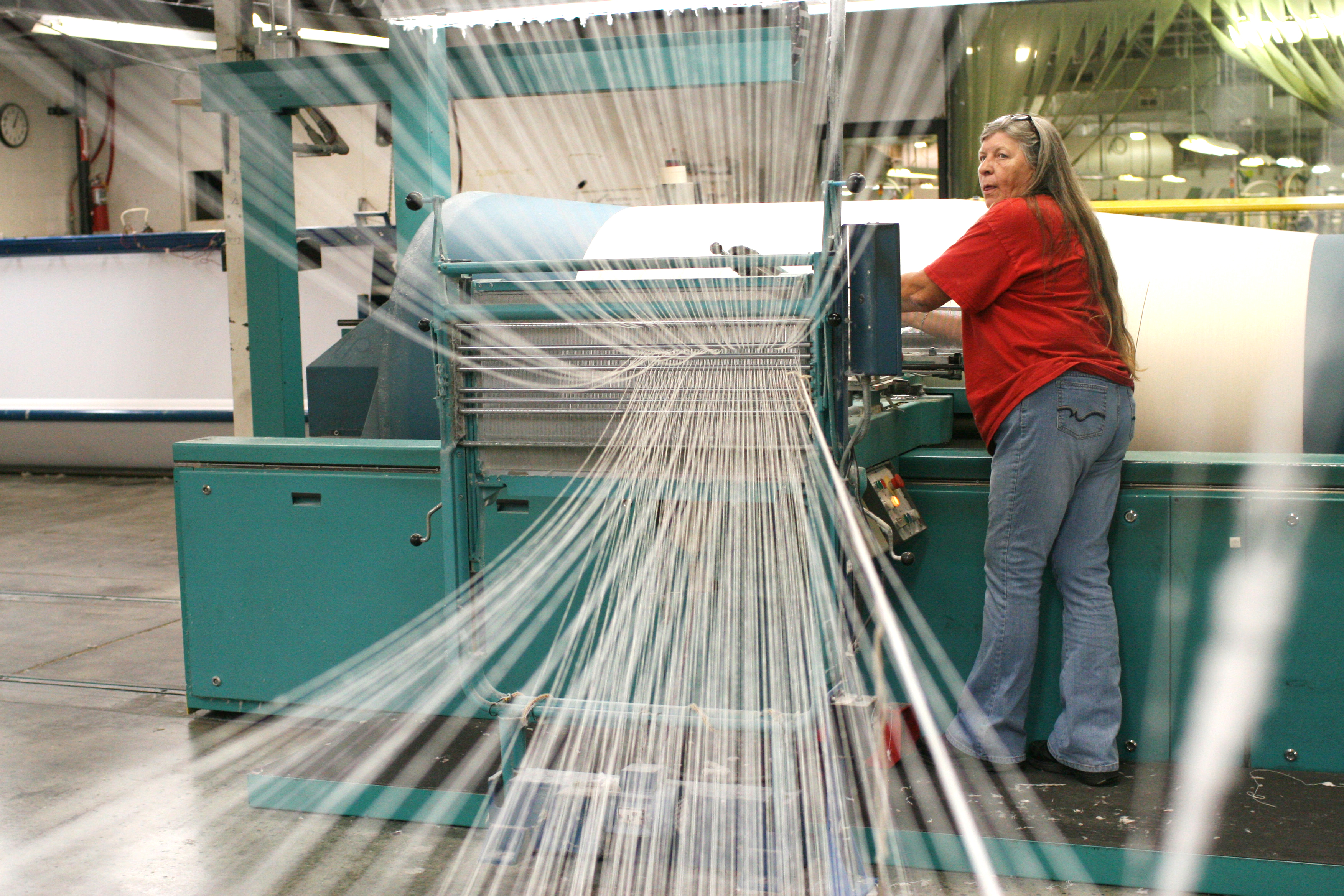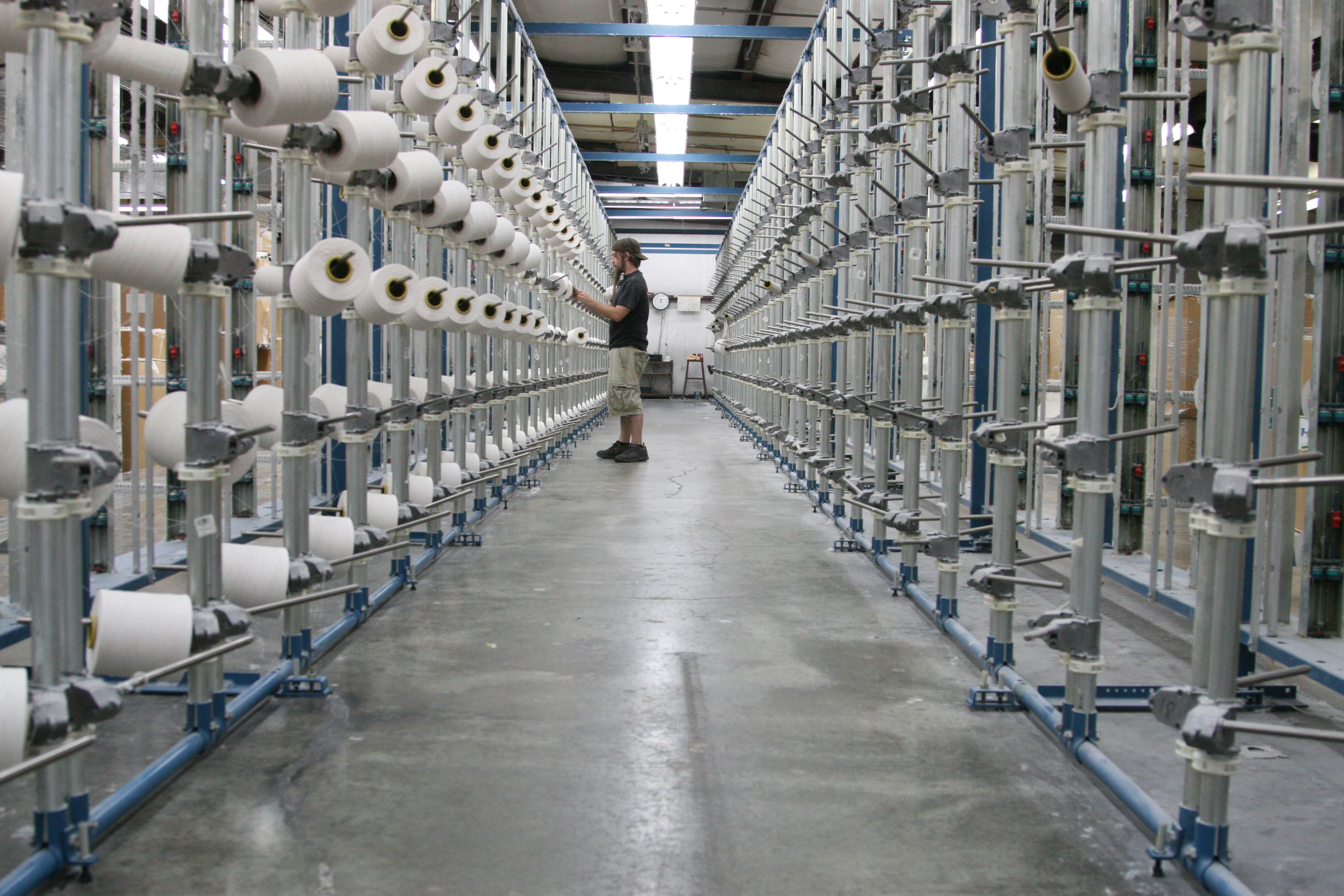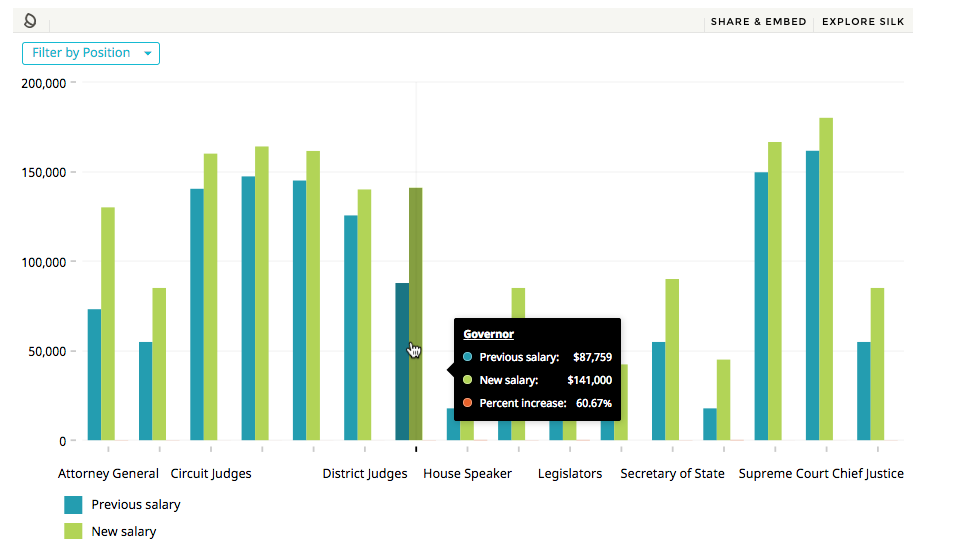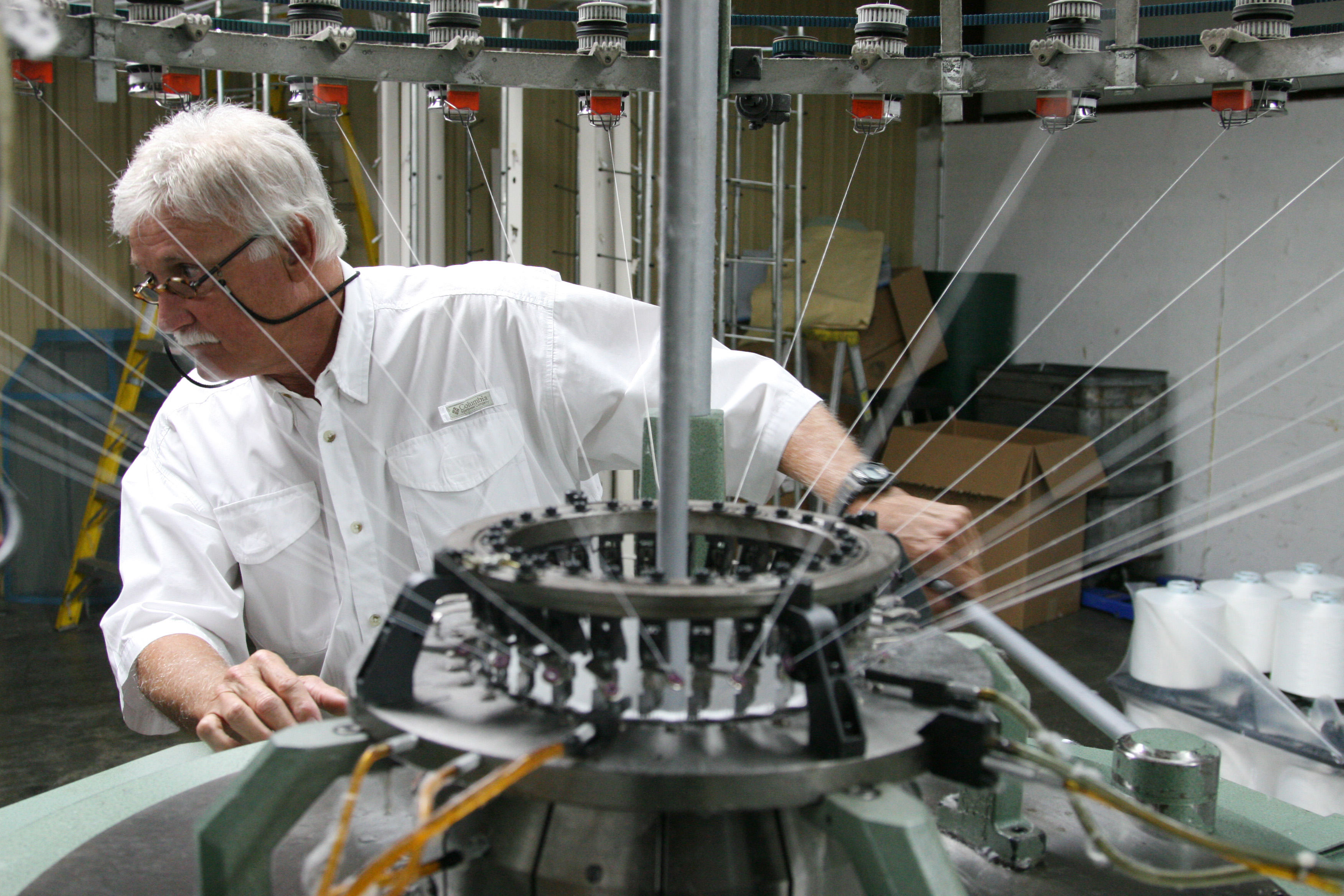Phillip Bryan and his band of 32 northwest Georgians are running as fast as they can to stay ahead of the Chinese flood.
For years, the textile producers have tried producing and selling every new product line they could think of, staying one step ahead of overseas competitors who mass produce fabrics at lower cost than American companies.
Southern Industrial Fabrics, Bryan's Rossville-based textile mill, constantly changes what it produces, bouncing among products such as outdoor furniture fabrics, recycled rubber floor mats and air filters that act like vacuum bags for smokestacks.
"We don't shy away from anything," Bryan said. "We do a little bit of everything, and what we did last year we're probably not doing this year."
Opening new markets seems to be the key to staying alive in the textile business. Almost all of America's clothing and footwear is imported - about 40 percent comes from China. Vietnam holds the second largest share with about 7 percent of textile imports.
Southern Industrial workers stand in front of booming machines, watching them pull threads and weave cloth faster than the untrained eye can follow.
Most of them have been there for decades, and some joke they know more about their work than they do their own families.
That knowledge helps them adapt to the company's constantly changing products.
That ability to stay ahead of foreign producers, whose costs are held down by government subsidies, cheap labor and low-rate loans, is what keeps the group employed, Bryan said. Other textile mills across Tennessee and Georgia laid off more than 60 percent of their workers over the past decade, according to the U.S. Bureau of Labor Statistics.
Longtime Employees
"It's kind of like home - everybody's family," said Nelda Alexander, who's spent 24 years running practically every machine in the mill at one time or another. "We've all turned gray together."
Alexander doesn't love her work. Her knee has started acting up, not while she's standing in front of her machine all day, but when she sits down at night. Still, the work is something to do and pays the bills, so she figures she'll do it long after she hits retirement age in five years.
"I like to stay busy, and there's only so much you can do when you don't work," she said. "I'll be here till I die or this place goes under."
She has a work record lending some credence to that claim. A couple of years back, she bought a Kings & Queens $5 scratch ticket on a lunch break that won her $400,000. After her break, she went back and finished her shift.
"A lot of people say, 'Well, I'd quit work,' but this job is my life," she said. "I paid off everything and put the rest in the bank."
A large sum for an individual, Alexander's lottery winnings wouldn't cover the cost of the $500,000 machine she works on. The average machine at Southern Industrial costs between $50,000 and $100,000. With 40 in operation, it's easy to see how low-cost loans and government subsidies help foreign textile operations.
To compete, the Rossville mill finds other ways to save money. Thirty-seven-year-old Billy Joe "Turkey" Taylor Jr. has worked at Southern Industrial his whole life, following in his father and grandfather's footsteps. Growing up around the machines, he's learned how to repair most everything - air conditioning, looms, plumbing, weavers - saving the factory money and time that would have been spent waiting on an outside repair man.
"From the floor to the ceiling, that's your job," he yelled over the constant throbbing of the machines, the factory heartbeat he's responsible for keeping alive. "If it breaks, you fix it."
Protection in Law
But only so much money can be saved in staffing, which accounts for about 6 percent of annual costs. Raw materials cover the majority of expenses at the mill, which typically generates from $7 million to $12 million a year in revenues.
The biggest customer for American textile production is the military, whose contracts require goods come from the U.S. to ensure supply lines aren't severed during wartime. Most all of the rest of domestic orders go to companies like Southern Industrial that stay technologically ahead of the foreign mass producers.
Recently, the company has tried its hand at environmentally friendly fabrics. Recyclable materials such as plastic bottles are shredded, palletized and produced into cloth used mainly as shopping bags.
"It's ecologically efficient, but it's expensive," Bryan said. "You've got to find the product that people will pay for."
That search isn't easy. When trying out any new product, green or otherwise, Southern Industrial has to go through a hit-or-miss, research-and-development process to manufacture samples, working closely with end-product producers to find the exact fabric for the product they're trying to create.
That process has its costs. The company recently spent $10,000 developing just one of them.
"Ninety-nine percent of this is scrapped," Bryan said, picking up a swatch of colorful fabric samples as he walked across the factory floor. Southern Industrial will often get close to the needed product, but customers always seem to have just one more little change they want to make.
But to keep his machines running, his staff working and the company thriving, Bryan will keep developing.
"We'll keep coming up with the next new thing to keep us moving," he said. "What it's going to be, I don't know."




